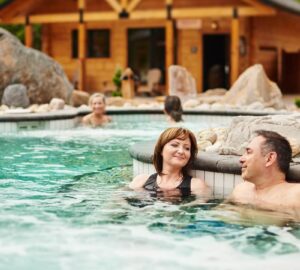 George Burns said, “You can’t help getting older, but you don’t have to get old.”
George Burns said, “You can’t help getting older, but you don’t have to get old.”
Just maybe the late actor and comedian had a point.
Kurt Kazanowski, a hospice, home care and health system expert, is author of The 7 Pillars of Growth for Hospice and Home Care, and an expert in senior care with more than 30 years of experience, says age is really only a measure of time, not how ‘old’ we are.
He says there are 10 things we can focus on to reduce the impact of advancing years:
- Increase physical activity: As we age and because of certain conditions, physical activity becomes more difficult. Nobody says you have to go to the gym and become a bodybuilder. There are simple things you can do like walking at a faster pace, stretches, dumbbell exercises with very light weights, deep breathing, yoga and paying attention to your posture.
- Increase mental stimulation: As we age, we actually use our mind less. Do things that make you think: a Sudoku puzzle, word search, math problems, reading, engaging in a political or philosophical debate and taking on a new hobby. The key is anything that forces your brain to work in a way that it normally doesn’t.
- Avoid too much stress: Chronic stress can cause cortisol levels to skyrocket, leading to inflammation and metabolic malfunctioning. Identify the things that stress you out, anticipate when they will occur, and take steps to manage your response. Focus on breathing, meditation, yoga and anything else that makes you feel calm and centered.
- Change your attitude: Are you generally optimistic and positive about things or do you tend to have a negative attitude? Try to become more in-tune with the tone of your inner voice and swap negative notions with positive affirmations.
- Improve your diet and eating style: We all know about eating plenty of fruits, vegetables and whole grains. But eating at a slower pace, chewing our food more and savoring each bite is better for you. Try to make a meal more of a daily event shared with friends or family, and avoid the five minute TV dinners when possible.
- Alcohol in moderation: Research indicates that small amounts of alcohol might be beneficial and even carry anti-aging properties. But once you go beyond two drinks a day, the drawbacks of alcohol begin to outweigh the benefits. Always remember alcohol in moderation.
- Be mindful of medication: Pill-popping is a major problem with both prescription and over-the-counter medications. Obviously certain drugs are essential for survival for certain people, but many of us are over-medicated which can have adverse effects and speed up the aging process. Speak to your doctor about the meds you must have and those that you might be able to reduce or eliminate.
- Avoid second-hand smoke: While the number of people who smoke has been drastically reduced these days, plenty of people still do it. Even enough exposure to second-hand smoke can speed up aging and have a number of negative health consequences. These days it is the smoker’s responsibility to stay away from you and others.
- Know your family history: Your genetic code is something you can’t change, but you can be aware of any conditions your parents or grandparents had, and you can make the appropriate lifestyle changes to help prevent those conditions.
- Clean your home: Focus on creating a healthy home environment. Vacuum more often. Vacuum with a good HEPA filter. Use a water purifier. Choose low VOC paints. Choose natural or organic products. Don’t leave things lying around. Make cleanliness a priority
~ Kurt Kazanowski, a hospice, home care and health system expert, is author of The 7 Pillars of Growth for Hospice and Home Care.







